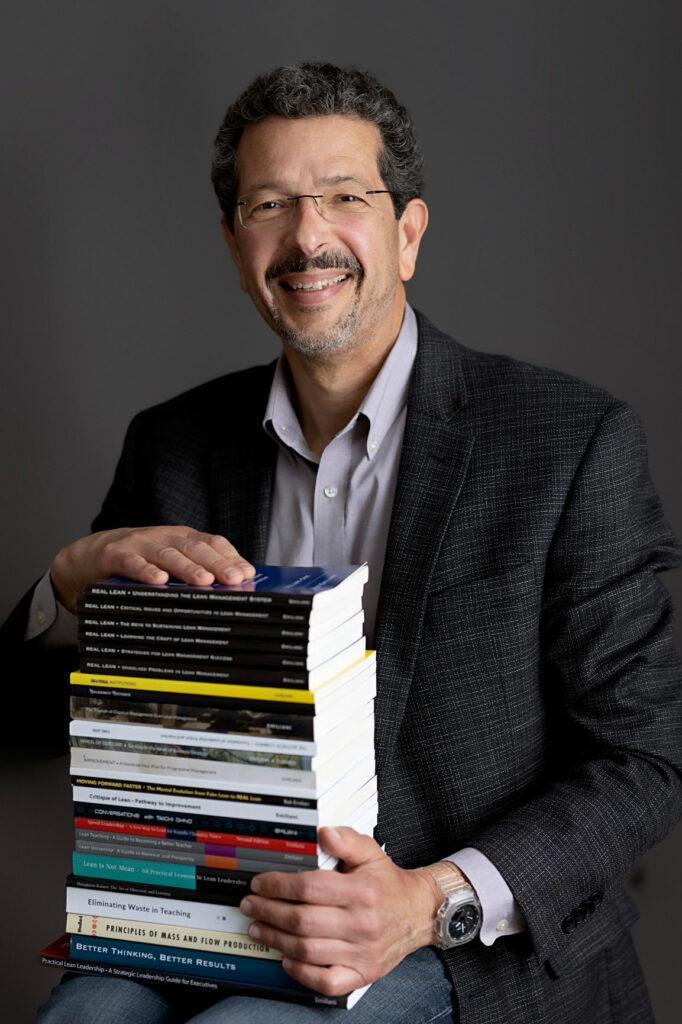
After authoring or co-authoring 28 books in 20 years, you may wonder why I stopped doing something that I love to do and which gave me so much pleasure. Here are the three main reasons why I stopped writing books, in order of importance.
1. I accomplished what I set out to do. I have exhausted my initial three lines of research questions to my satisfaction. The three lines of research were: a) What is Lean leadership, how do Lean leaders think, how do they behave, and what do they do? b) How do you achieve a Lean transformation? c) Why are Lean transformations so rare? Why do Lean transformations fail? What is it about progressive management that top leaders dislike so much? 👉 It is now up to others to continue if they see further opportunity in these research questions. And they can critique my work, build upon it, or refute it.
2. It is unlikely that anyone has read all 28 of my books, or perhaps even 14 of my books. So why write a 29th? Also, there is no customer demand for a 29th book, and people’s interest in alternative (heterodox) perspectives is low and could fall further over time.
3. I did not want to end my book writing work with a dud and then be known for having written “one too many” books. I prefer to finish strong. Also, I think that many, if not most of my books have a timeless quality and will be useful to readers for many years to come.
I have been writing professionally for 42 years. I may have stopped writing books, but I have not stopped thinking. I will continue to produce thought-provoking blog and social media posts.
Additionally, I recognize that times have changed. We are entering the age of generative artificial intelligence (GAI), and that will likely have interesting consequences in relation to books of the sort that I have written and the business audience that reads them:
- I want to separate my human-authored work from AI-authored works, many of which will blur the line between what is fake or wrong and what is real or true. Also, books produced by GAI will be loaded with biases and stereotypes from the reservoir of information it draws from.
- My books result from meticulous research (complete with citations) and embody time-consuming critical thinking and the synthesis of varied information to create new insights and new ideas. As such, there was the highest levels of quality control and editorial control, which GAI cannot (yet) match.
- More and more people will outsource their thinking to GAI and reduce the need for critical thinking. This will reduce the need for critical thinking and make people more vulnerable to a wide range of confirmation biases. People easily overestimate the accuracy, reliability, and completeness of machine-generated information due to a spiritual belief in the goodness of machine technology (a god-like, mystical black box). Trust in machine-generated information already seems to exceed trust in human-generated information.
- People will be more prone to believe what they want to believe, courtesy of algorithms that feed people the filtered information that they want to see. Instead of a physical book being one’s companion, GAI apps will become their companion. Convenience comes with high costs; thinking, judgement, and decision-making will all be impaired.
GAI is already becoming part of daily life. Much of its impact will be positive, but some will be negative. In any event, the books I authored from 2003-2023 reflect the hard work that is (was) required to write books — the combination of hard-won industry experience, decades of continuous research, critical thinking, creative synthesis of information, and the skill of writing that I honed over five decades.
Question from a reader: Which book is your favourite? Not the one you’d most recommend, or the best selling one. But which gave you the most satisfaction, challenge, or joy in writing?
Answer: Good question. Writing is both joy and a fun challenge for me; I obviously love it. Originality and providing insight is very important to me. I have to pick two books. The first would be The Triumph of Classical Management Over Lean Management because it is such a big breakthrough. The second would be Better Thinking, Better Results, because it is a detailed explanation of the logic, process, and benefits of a real-world “brownfield” Lean transformation. The books are at opposite ends: The argument for Lean management and the classical management argument against Lean. Understanding both sides of an argument makes for a much better understanding of the problem (and why Lean people should read both books). It is important to note that these and the other books would not have been possible had I not been trained in TPS by Shingijutsu when I worked at Pratt & Whitney, and spent subsequent decades applying TPS principles and practices. This gives all of my books a practical perspective. Writing books that are both informative and have practical utility is very satisfying.
